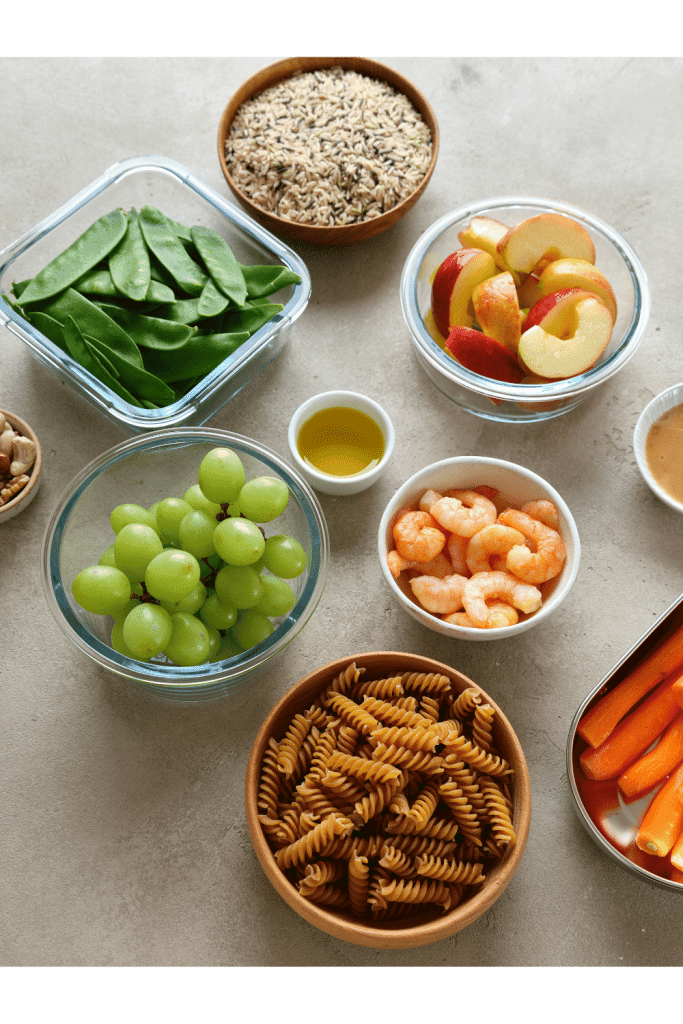Nurturing Healthy Eating Habits: A Parent’s Guide to Nutrition Conversations Ages 1-18

Discussing nutrition with children is a delicate art that evolves as they grow. The right approach can transform food from a potential battleground into an opportunity for education, connection, and lifelong healthy eating habits.
For more information on infant feeding tips, see this post https://justaskjennp.com/baby-solid-foods-complete-feeding-guide/
Toddlers (1-3 Years): Laying the Groundwork for Healthy Eating Habits
Communication Strategies
- Use positive, simple language
- Make mealtime fun and interactive
- Focus on exploration, not judgment
Practical Approaches
- Describe foods by color and texture
- Involve kids in simple food preparation
- Create playful names for healthy foods
- broccoli- trees, X-ray Vision Carrots, Asparagus Rex
- Use excitement to introduce new items
Example Phrases:
- “Look at these beautiful green broccoli trees!”
- “Can you help me mix the colorful salad?”
- “Wow, these carrots are so crunchy!”
Preschoolers (3-5 Years): Building Nutritional Awareness
Education Through Engagement
- Introduce basic nutritional concepts
- Explain food’s role in growing strong
- Protein- strong muscles
- Carbohydrates- energy
- Fruits and Vegetables- immune system
- Use storytelling and imagination
Interactive Learning Techniques
- Create food-based games
- Use picture books about nutrition
- Teach basic food group concepts
- Gardening or grocery shopping together
Conversation Starters:
- “These carrots will help your eyes see better!”
- “Protein helps your muscles grow big and strong”
- “Let’s count how many colors we can put on our plate”
Elementary School (6-11 Years): Deepening Understanding
Nutritional Science for Kids
- Explain how different foods fuel the body
- Discuss nutrition without creating food anxiety
- Encourage critical thinking about food choices
Learning Approaches
- Break down nutrients in kid-friendly terms
- Use body and energy analogies
- Discuss food as “sometimes” vs. “everyday” items
Educational Techniques:
- Compare food to car fuel
- Create body superhero narratives
- Discuss energy levels and food connection
Tweens and Early Teens (12-14 Years): Critical Thinking and Self-Awareness
Sensitive and Empowering Conversations
- Focus on health, not appearance
- Discuss media influences on body image
- Encourage self-reflection
- Provide accurate, scientific information
Conversation Frameworks
- Talk about nutrition as personal empowerment
- Discuss cultural and social aspects of food
- Introduce meal planning concepts
- Explore cooking and nutritional independence
Approach Strategies:
- Ask open-ended questions
- Share personal experiences
- Provide resources for further learning
- Validate their growing autonomy
Teenagers (15-18 Years): Nutritional Independence
Holistic Nutrition Discussions
- Respect their increasing independence
- Provide science-based information
- Discuss long-term health implications
- Address social and emotional aspects of eating
Advanced Nutrition Conversations
- Explore nutrition’s role in mental health
- Discuss sustainable eating
- Talk about budget-friendly healthy choices
- Address potential nutritional myths
Conversation Depth:
- Nutrition and athletic performance
- Mental health and dietary connections
- Ethical and environmental food choices
- College and independent living nutrition
Universal Conversation Guidelines for Healthy Eating Habits

What to Avoid
- Never use shaming language
- Avoid discussing weight negatively
- Don’t label foods as “good” or “bad”
- Prevent creating food anxiety
Positive Communication Principles
- Be a role model
- Practice positive eating behaviors
- Create a judgment-free environment
- Maintain open, ongoing dialogue
Red Flags to Watch
Potential Nutrition-Related Concerns
- Sudden extreme food restrictions
- Obsessive calorie counting
- Significant weight changes
- Negative self-talk about body or food
- Hoarding of food
Professional Support
- Consult pediatricians
- Consider nutritional counseling
- Support mental health resources
Practical Implementation Tips
- Start conversations early
- Be consistent
- Practice patience
- Lead by example
- Keep conversations light and positive
- Adapt your approach as children grow
- Allow them to help in the kitchen
- Grow a garden
- Keep offering varieties of foods, even if they refuse them at first
Final Thoughts
Nutrition conversations are a journey, not a destination. By approaching the topic with love, respect, and age-appropriate information, you’ll help your children develop a healthy, positive relationship with food. With patience and perseverance, your child will develop healthy eating habits through your positive example.
For daily expected amounts of food groups, use this resource https://www.mayoclinic.org/healthy-lifestyle/childrens-health/in-depth/nutrition-for-kids/art-20049335
Nutrition is more than what’s on the plate—it’s about nurturing body, mind, and soul.
